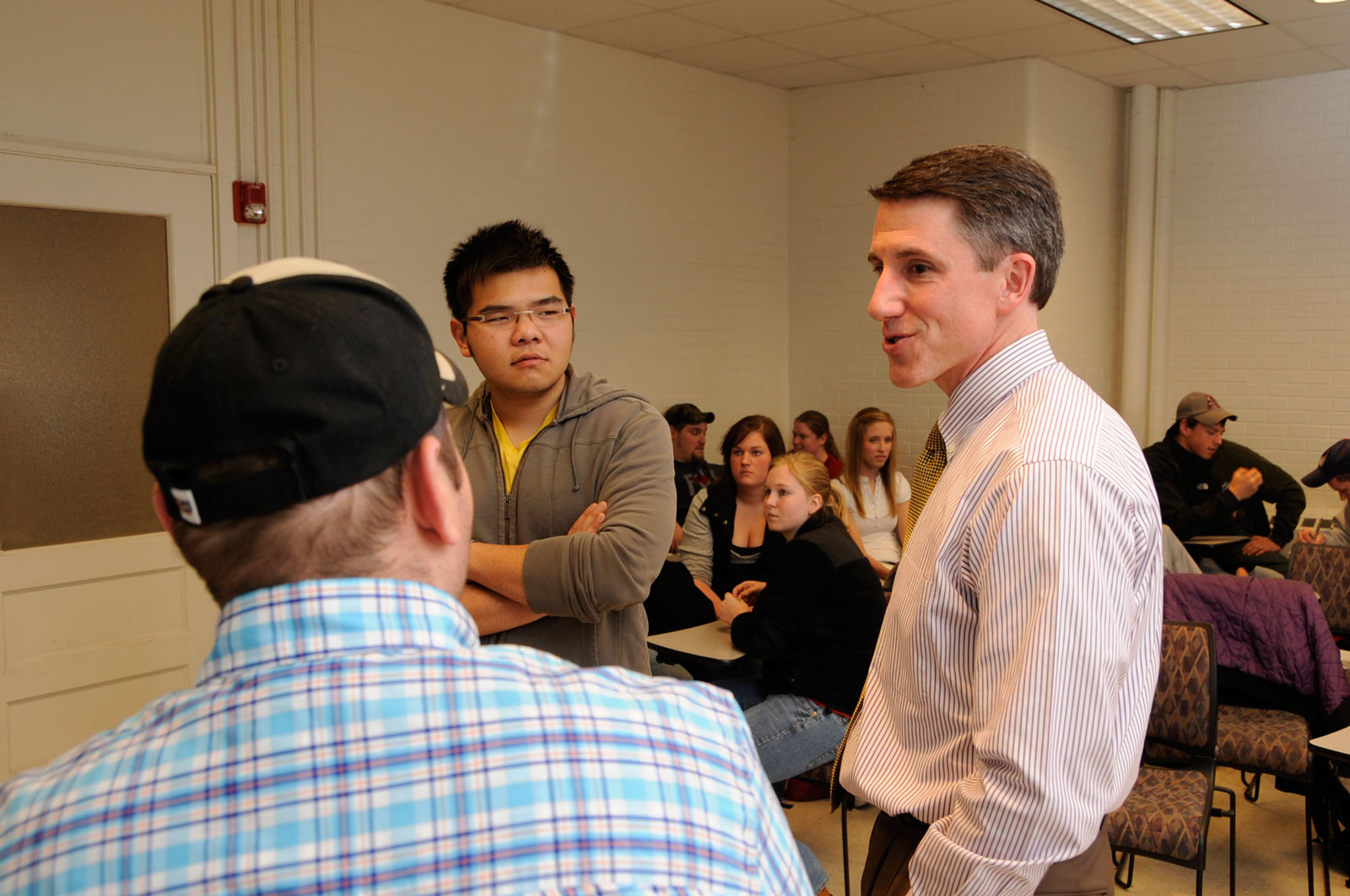
Changing Lives By Taking Chances
Kevin Kimle knew he was taking a leap of faith.
He had a great job working for Pioneer Hi-Bred International in business development. He negotiated deals and performed market analyses. In doing so he used one of the first web browsers even created to read reports from the U.S. Department of Agriculture.
Kimle (’91 economics) began thinking: This technology has enormous potential to serve the agriculture industry at large. He knew he could make it happen. He understood it was a leap of faith, but he had faith in his idea, his abilities and the people he would gather around him.
“A light bulb went off about the power of creating software to create efficiencies in how agriculture worked. It was a cost-effective way to move and share information between buyers and sellers. My friend, Dave Krog, and I had fresh ideas on how that could play out,” Kimle says.
Kimle and Krog (’80 agronomy, MS ’82 economics, PhD ’88 economics) left Pioneer to build the business that would become E-Markets. The Internet-based electronic commerce system was the first of its kind in agriculture and food industry. Following the success of E-Markets, Kimle launched Decision Commodities, a company that provided risk management tools similar to mutual funds for grain producers.
“Kevin was always thinking of unique ways to address problems in our industry, and he gave me the entrepreneurial fever as well,” Krog says. “He had a vision that the Internet could bring significant value to agriculture and in particular bring efficiencies and scalabilities to identity-preserved grain production and contracting. Kevin was very confident and had a passion for the vision and what we were doing. It was a lot of fun to work with Kevin and build a business from scratch.”
It was this type of vision and initiative that made Kimle a stand out choice for the Bruce Rastetter Chair in Entrepreneurship in the College of Agriculture and Life Sciences, which he filled in 2009. Rastetter, an Iowa agricultural entrepreneur who created Heartland Pork and Hawkeye Renewables, endowed the position as a way to infuse entrepreneurship into the university experience.
“I gave the gift with the goal of having a chair that taught classes on entrepreneurship, but more importantly that would get students excited about entrepreneurship, about why it’s important and the opportunities it provides. Kevin reflects that. You can see it in his students and when you sit in on his classes or visit with him,” Rastetter says. “The challenge is continuing to grow when you have success. Kevin is asking people to participate in offering internships and scholarships, collaborating with partners on campus and continuing to raise private and public funds to support their efforts.”
Kimle says he loves the challenge of grooming future entrepreneurs at ISU.
“They took a chance on me,” Kimle admits. “There’s a difference between real-world experience and creating academic experiences. At its core, this is an enterprise-building job. But aspects are different than any other job I’ve had.”
Kimle got his first taste of running a business as a teenager when his dad turned over his family’s hog operation to him on their diversified farm in Nebraska. His degree in agricultural business from the University of Nebraska and a series of internships with small startups helped him graduate from “shovel mechanic” to entrepreneur.
He also worked a stint for Senator Dave Karnes in Washington, D.C., before he earned his master’s in economics from Iowa State under the direction of Marvin Hayenga, whom Kimle still considers a trusted adviser.
- From teaching courses to one-on-one student consultations, Kimle’s job description is packed. A few items from his to-do list include:
- Advise students through idea creation and business planning.
- Connect students with mentors and resources.
- Build outreach opportunitiesto foster entrepreneurship with alumni and professionals.
- Design and lead international entrepreneurship experiences.
- Teach introduction to agricultural marketing and entrepreneurship in agriculture courses.
But he says it all comes down to one guiding principle—changing people’s lives for the better.
“It’s about creating dialogue in the right place at the right time. We can talk technology or building companies, but it is about people changing peoples’ lives in a lot of different ways, whether it be professors, professionals or students,” Kimle says.
Kevin Kimle Doesn’t Mince Words
Kimle uses a merit point system to evaluate his students like most professors. But, he takes it a step farther by offering this “interpretation” of students’ final letter grades.
(A) – Your work is fantastic. I’m energized by your words, ideas and actions. You took this assignment seriously, exceeded expectations and exhibited great effort and insight. I would be proud to show this work to others.
(B) – Solid work, but it lacks sizzle. Your work was diligent according to the assignment and standards and was completed on time. Some parts of the work lacked completeness or thorough attention to detail.
(C) -I’m getting a little bored reading your assignment or listening to your presentation. Parts of the assignment were missing, incomplete and lacking careful attention. Clearly, this could have used more effort and caring.
(D) – I’m agitated that you wasted my time. There are major missing pieces in the assignment, and it’s difficult to detect much concern on your part about your work.
(F) – Ugh. You’re wasting my time and yours. You just plain did not try.



